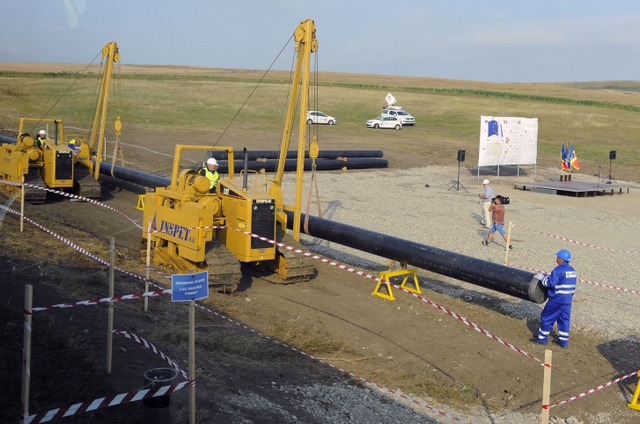Romanian Gas for the Republic of Moldova
Starting on January 1st, 2015, the Republic of Moldova will receive natural gas from Romania, which will reduce its dependence on Russian gas.

România Internațional, 23.12.2014, 13:41
As of January the 1st, the Republic of Moldova is taking a major step towards reducing its energy dependence on the Russian Federation. The authorities in Bucharest and Chisinau on Monday signed a contract under which Romania will supply natural gas to the neighbouring country for a price per cubic meter 55 US dollars lower than the one charged by Russia. In a first stage, the Iasi — Ungheni pipeline, officially opened on August the 27th, 2014, will carry relatively small amounts of gas, covering only 3% of Moldova’s needs. Later on, the pipeline will be extended by another 100 km, to reach the Moldovan capital, Chisinau, and will be able to deliver 1.5 to 2 billion cubic meters of gas, accounting for the total consumption in this former Soviet republic.
Although Moldova has been a member of the EU energy community ever since 2010, and has transposed the provision of the EU’s Third Energy Package, its only gas supplier and provider until recently was Moldova Gaz, a group controlled by Moscow. Russia allots three times more gas to the breakaway region of Transdniester, where the Republic of Moldova’s main industrial units are concentrated. The Moldovan authorities have been repeatedly blamed for Transdniester’s failure to pay its gas bills, in a form of political and economic pressure from the Russian Federation. This is one of the reasons behind the establishment of a new operator, Vestmoldtransgaz, in charge with the delivery of Romanian natural gas. Upon signing the Romanian-Moldovan gas supply contract, the incumbent economy minister of Moldova, Adrian Candu, said the agreement would strengthen Moldova’s energy security:
“This is an important moment, which adds to the energy security of the Republic of Moldova; our appreciation and gratitude go to the Government of Romania, which has always given us all the support we needed.”
In its turn, Romania imports small amounts of gas from the Russian Federation, but according to experts it has enough resources, including in the Black Sea continental shelf, to ensure its energy autonomy. Romania therefore found it easy to avoid the gas crisis triggered by the Western economic sanctions against Russia.






























